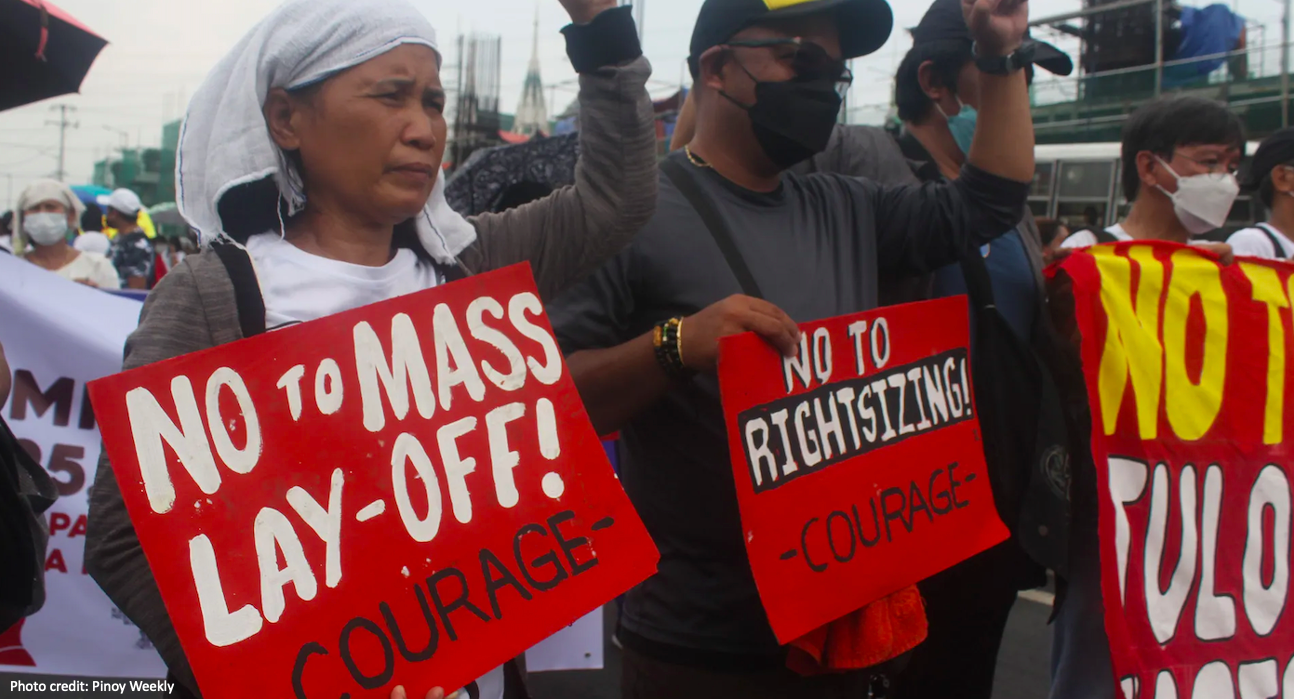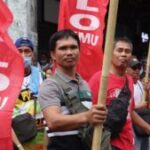The use of propagandistic language to push undesirable policies is very much alive under the Marcos Jr administration – arguably even more alive than ever. The economy, for instance, is always glowingly described despite how difficult things are for the majority of poor and low-income Filipinos.
But the distortion of language is particularly glaring with the fiendishly titled National Government Rightsizing Program (NGRP) whose enabling law is targeted to be passed this year. It’s fiendish because the targeted displacement of tens of thousands of government workers, weakening of the state, and poorer prospects for development are disguised by saying that it is about rightsizing – because right is always alright, right?
Wrong
Not really. It’s unarguable that every government should be constantly seeking to improve and become more efficient and effective.
The “Rightsizing the National Government Act of 2022” is, however, fundamentally wrong because underneath a lot of verbiage it really is just about cutting down on the number of government employees. It’s actually there in the title – “rightsizing” is corporate-speak for laying off staff to boost corporate profits.
The current rightsizing program fits well with the Marcos Jr’s fiscal consolidation aka austerity program. The proposed law already warns that it is after “redundancies, overlaps and duplications,” “simplified” operations, “streamlined” systems, and “economical” implementations. If there was any doubt what these imply, one-third of the bill’s 12 pages of text is about retirement and separation.
The NGRP really starts from the premise that the government is too flabby and needs to be reduced. The government’s previous 2004-2013 Rationalization Program in the wake of the mid-2000s Arroyo-era debt distress, for instance, resulted in 22,300 personnel immediately let go aside from 14,200 other positions abolished once they were vacated.
Looked at from a global context though, the Philippine government is more guppy than whale. The government is actually among the bottom third worldwide in terms of size. According to the International Labor Organization (ILO), our 9.5% share of public employment to total employment is less than half the global average of 19.6% and ranks us at 123rd of 173 countries. (ILOStat)
Similarly, using data from the World Bank, our government expenditure equivalent to 12.5% of gross domestic product (GDP) is less than the global average of 16.6% and ranks us 111th out of 175 countries; this is 2019 data because the 2020 figures are distorted by unusual pandemic-related spending and the biggest GDP collapse in the country’s history.
This relatively small government is actually reflected in how the country is ranked 100th out of 158 countries in terms of progressivity of public services, according to the Commitment to Reducing Inequality Index (CRI) of Oxfam and Development Finance International.
The conventional wisdom that the government bureaucracy is somehow too big and should be rightsized aka reduced is inaccurate. If anything, our public sector is actually among the smallest in the world and correspondingly doesn’t provide as much of the government services that it could and should.
Ineffective
It’s always useful to eliminate redundancy, overlaps and duplication and to promote efficiency and economy – but doing this does not necessarily make the government more effective. Trimming fat is necessary but, with the considerable development challenges facing the country, it’s actually more important to build muscle.
The rightsizing thrust is misguided in assuming that trimming the government workforce and reducing personnel services expenses will make government more effective. On the contrary, the demands on the State to manage social and economic development are not just growing but also growing more complex. The only way to develop the necessary capacity, skills and knowledge for this is through actual practice by a robust and competent bureaucracy.
Greater state intervention is needed to improve farmer and fisherfolk productivity, to implement industrial policy as all successful industrializers have done, and to tackle huge environmental problems. Public social services and social protection need to be expanded, not shrunk. Standards of living have to be rapidly increased and inequalities drastically reduced. The accumulation and direction of finance has to be regulated.
Global economic volatility is increasing from the Russia-Ukraine war, various geopolitical flashpoints, and debt and financial risks. At the same time, the country has to build international alliances and work for more favorable international economic arrangements.
There is so much to do – all of which require a bigger government that is also better and more efficient and more competent, and of course more transparent and less corrupt.
The metrics for assessing the size of the government should be what’s needed for social and economic development and not, as is too commonly argued, simplicity and savings for their own sake. Einstein’s exhortation is apt: “Everything should be made as simple as possible, but not simpler.”
The administration’s prioritizing government rightsizing is in line with its so-called fiscal consolidation which is a euphemism for austerity. Yet an austerity program that diminishes instead of builds the capacity of the government for development interventions is grossly counterproductive. Its proponents will appeal to savings and simplicity even if the reality is that governing for development, as country experiences around the world have shown, is costly and complex.
Development
The economy can be strengthened but not from privatizing and deregulating and emaciating state capacity. All-important national industrialization, for instance, can only happen with a government able to deftly manage trade protection, investment policies, financial incentives and market signals to build nationally-owned high-technology industrial firms. The outdated neoliberal fetish with free markets is lazy and fatal.
Public services and prospects for strategic economic development will only worsen as the government is shrunk further. For all its efficiency babble, the rightsizing program goes in the direction of further weakening the government just when it is so needed to become bigger and better to transform the economy to serve the public interest.



